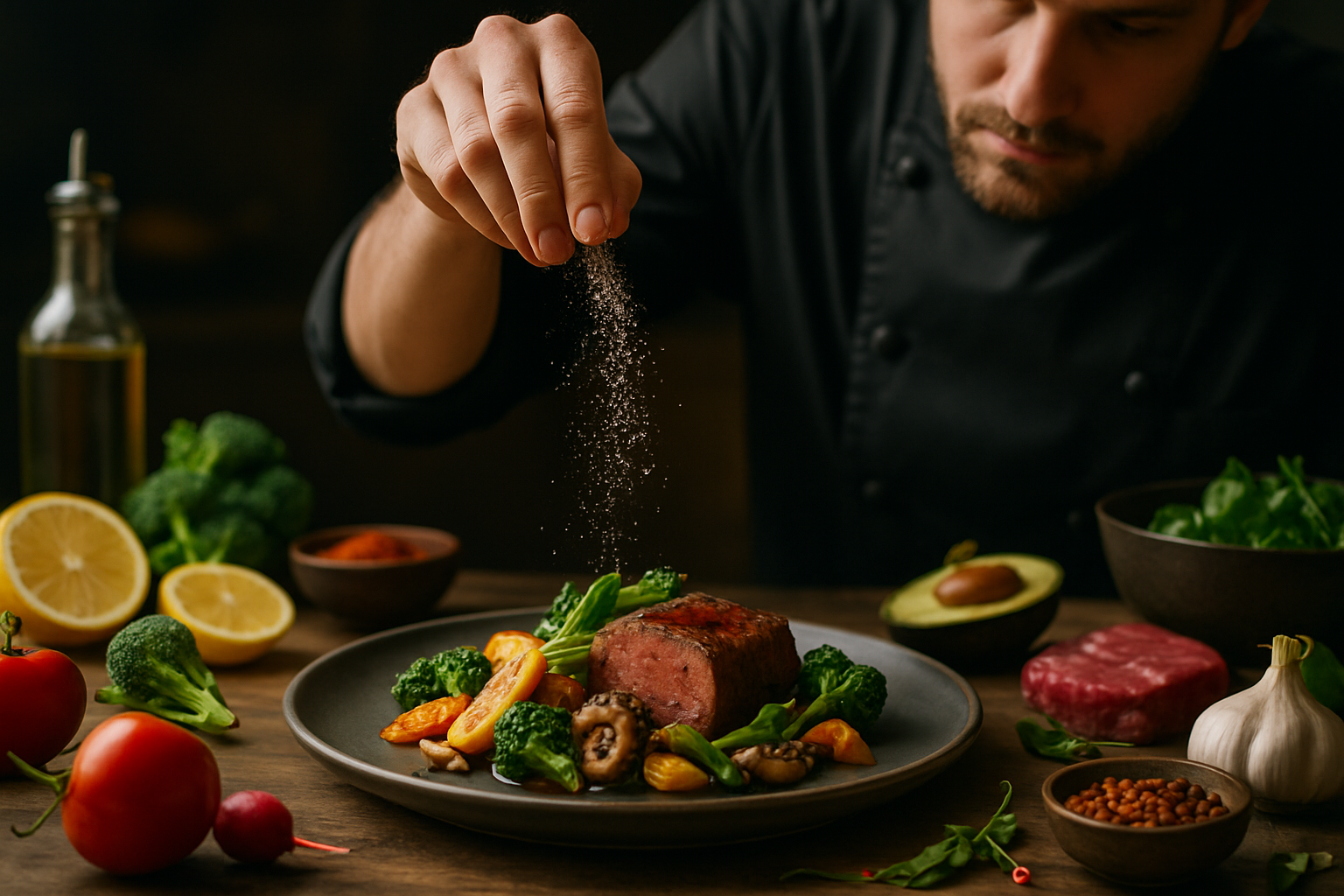Culinary Alchemy: Transforming Humble Ingredients into Gourmet Delights
Elevate your cooking game with the art of culinary alchemy. Discover how to transform simple, everyday ingredients into show-stopping dishes that will impress even the most discerning palates. From innovative techniques to unexpected flavor combinations, this guide will unlock the secrets to creating gourmet meals from humble beginnings.

Elevating Everyday Vegetables
Vegetables often play second fiddle in many dishes, but with the right techniques, they can become the star of the show. Take the humble carrot, for instance. Roasted with honey and thyme, it transforms into a sweet and savory side dish. But why stop there? Puree those roasted carrots with a touch of coconut milk and curry powder, and you have a velvety soup that’s both comforting and exotic. Or slice them paper-thin, quick-pickle them in rice vinegar and star anise, and you’ve got a crunchy, tangy garnish that can elevate any dish from salads to sandwiches. The key is to think beyond the obvious and consider different cooking methods, flavor pairings, and presentations that can showcase the vegetable in new and exciting ways.
Reinventing Grains and Legumes
Grains and legumes are often overlooked in gourmet cooking, but they offer a world of possibilities for the creative chef. Take quinoa, for example. Instead of serving it as a simple side dish, try toasting it and using it as a crunchy coating for fish or chicken. Or transform it into a risotto-style dish by cooking it slowly with stock and finishing it with Parmesan and herbs. Lentils, too, can be elevated beyond basic soups and stews. Puree cooked lentils with roasted garlic and olive oil for a sophisticated dip, or form them into patties with spices and pan-fry for a gourmet vegetarian burger. The key is to think of these ingredients not just as fillers, but as versatile components that can add texture, flavor, and nutrition to your dishes in unexpected ways.
The Art of Sauce Alchemy
Sauces are the unsung heroes of gourmet cooking, capable of transforming even the simplest ingredients into something extraordinary. The secret lies in understanding the basic components of a great sauce and how to balance them. Start with a simple pan sauce: after searing meat, deglaze the pan with wine or stock, add aromatics like shallots or herbs, and finish with a pat of butter for richness. This basic technique can be endlessly varied with different liquids, aromatics, and finishing touches. For a more adventurous approach, experiment with unconventional ingredients. A sauce made from pureed roasted bell peppers and almonds can add depth and complexity to grilled meats, while a reduction of balsamic vinegar and fresh berries can elevate a simple dessert to gourmet status.
Transforming Proteins with Technique
The difference between a good dish and a great one often comes down to technique, especially when it comes to proteins. Take chicken breast, for example. Typically seen as a bland, dry cut, it can be transformed with the right approach. Try brining it in a solution of salt, sugar, and aromatics for juicier, more flavorful results. Or butterfly it, stuff it with herbs and cheese, and roll it into a roulade for an elegant presentation. Fish can benefit from similar treatment. Instead of simply pan-frying a fillet, try curing it with salt and sugar, then serving it carpaccio-style with a citrus vinaigrette. The key is to think beyond basic cooking methods and consider how different techniques can enhance the flavor, texture, and presentation of your proteins.
Useful Tips & Facts for Culinary Alchemy
• Always taste as you go and adjust seasoning accordingly
• Experiment with contrasting textures in a dish for added interest
• Learn the art of layering flavors to create depth in your dishes
• Don’t be afraid to combine sweet and savory elements
• Master the technique of deglazing to make flavorful pan sauces
• Invest in a good set of herbs and spices to expand your flavor palette
• Learn to balance acidity, sweetness, saltiness, and umami in your dishes
• Consider the visual appeal of your dish - presentation matters
• Understand the importance of proper seasoning at every stage of cooking
• Embrace imperfection - some of the best culinary discoveries come from mistakes
Conclusion
Culinary alchemy is more than just cooking; it’s an art form that allows you to express your creativity and surprise your taste buds. By mastering the principles of flavor combination, texture manipulation, and innovative cooking techniques, you can transform even the most humble ingredients into gourmet masterpieces. Remember, the key to successful culinary alchemy lies in experimentation, understanding flavor profiles, and a willingness to think outside the box. So go forth, embrace your inner alchemist, and turn your kitchen into a laboratory of delicious discoveries.






